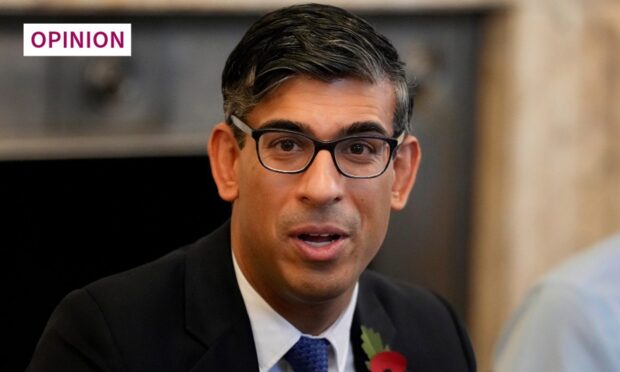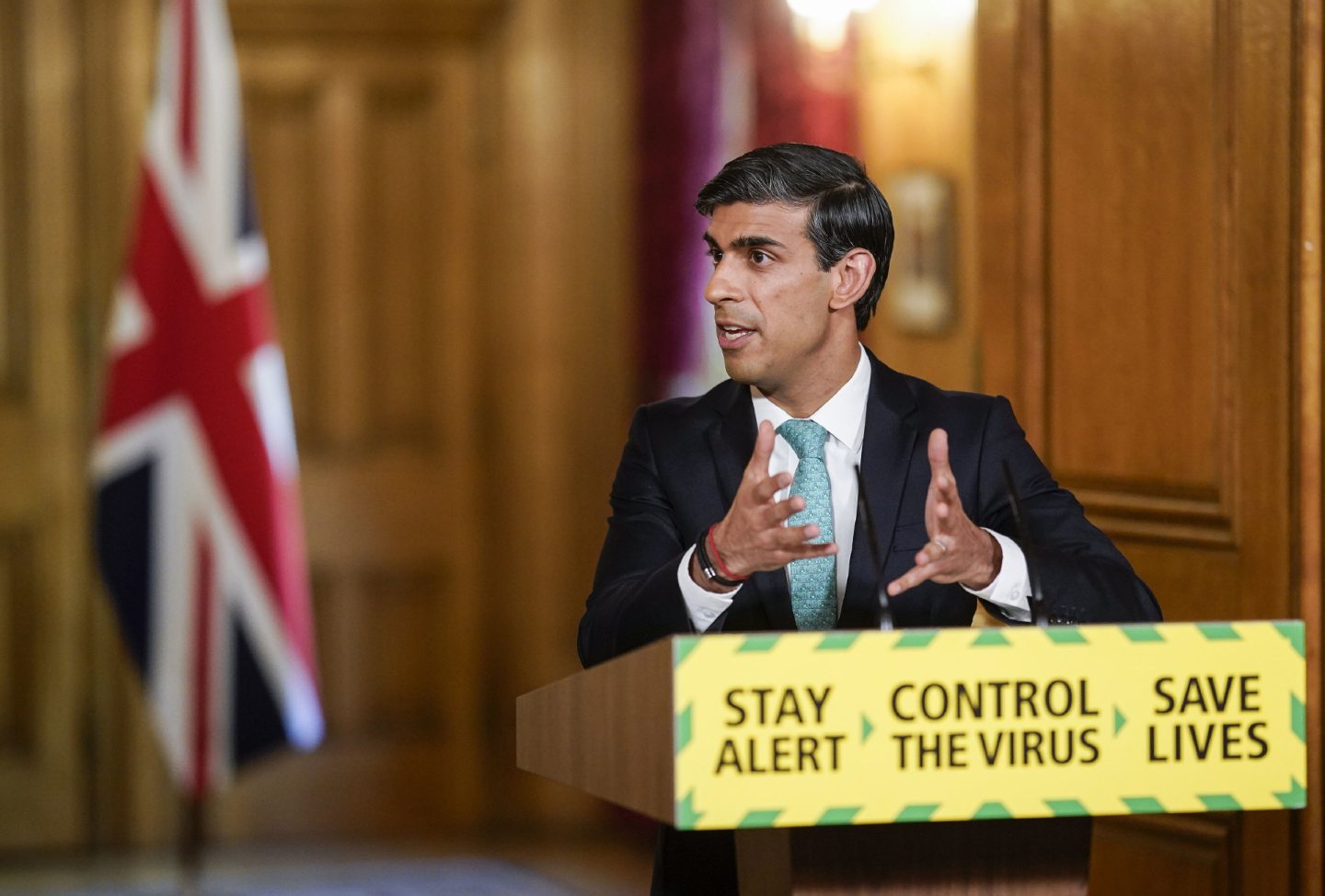When Rishi Sunak gave a speech ahead of this week’s summit on artificial intelligence, it jarred for a couple of reasons.
Firstly, it feels like every time a prime minister has addressed the nation recently, they’ve either been starting the job or resigning shortly after. It made a change for a PM to talk about something other than their own employment.
Secondly, it felt like he was desperately trying to convince the country that his enthusiasm for the topic was justified. And his enthusiasm was evident. Talking about tech is Rishi Sunak’s happy place.
There’s certainly space for a politician to grasp Harold Wilson’s mantle as the champion of the “white heat of technology”. Neither Keir Starmer nor Rishi Sunak convince, however. Starmer promises to harness environmentally friendly innovation in a green new deal, but that’s a phrase that brings to mind nothing so much as sad Kermit the Frog toys knocked down in the Disney Store.
Sunak gives the impression that he understands the potential of cutting edge tech, but he falls down on how it applies to humanity.
For example, in his speech last week and in the papers the government released ahead of the summit, he warned one of the dangers of AI is biased decision-making. Maybe he’s not been paying attention, but we’ve already got plenty of that.
If he’s genuinely worried about biased decision-making, why does he keep picking “journalists” from GB News to ask questions at his press conferences?
If normal people think about AI at all, their concerns are centred on whether the technology is going to put them out of work in the first instance (and we journalists worry about that more than most), and then whether it’ll get smart enough to work out that humans – with their biased decision-making – are an impediment to progress.
Recent cinema release The Creator is set in a world in which humans are at war with artificial intelligence after the robots nuke Los Angeles. It’s a legitimate question to ask how realistic that is. (Presumably Sunak would rewrite the movie so that the conflict is started by some biased decision-making. Perhaps the AI hacks an algorithm so Les Dennis wins Strictly or something.)
PM demonstrated wilful blindness to Covid data
The whole AI summit business has betrayed Rishi Sunak’s preference for the philosophy of Silicon Valley over the politics of the town hall, the foodbank and the overwhelmed hospital.
There are signs that, beneath the buzzwords, he either doesn’t care for or doesn’t understand the elements that make up the term artificial intelligence. AI sounds catchy, but it’s catch-all to the point of meaninglessness.
For all the pictures of Arnold Schwarzenegger as the Terminator that have accompanied coverage of the summit, AI is really just a swanky word for maths. It’s not (necessarily) humanoids, it’s just servers in sheds, consuming masses of electricity, limited to a language of zeroes and ones and digesting data.
Dominic Cummings says in Feb 2020 the Covid pandemic was not seen by senior people across govt as an "imminent crisis" but a "distant problem" for the months ahead. He concedes it was "pretty insane" that many – incl the PM – disappeared for half-term hols.
— Pippa Crerar (@PippaCrerar) October 31, 2023
And it’s Sunak’s disdain for data that betrays how callow his zeal for technology and all it could offer really is.
Nowhere has this been better demonstrated than by the other big domestic politics story this week – the UK Covid inquiry.
Every wrong turn in the handling of the pandemic was brought about by a wilful blindness to the numbers and the science. Biased decision-making, if you will.
We’ve already heard how Sunak crashed on with Eat Out to Help Out in the face of concerns.
Rishi Sunak is no tech bro
Until earlier this year, my family and I took part in the Office for National Statistics scheme that monitored how widespread Covid is. We tested once a month, felt we were doing our tiny bit to help the nation, and our results provided vital data to help the NHS model how the outbreak would impact services.
But, in an effort to convince folk that Covid was over, the PM binned that study off in the spring.
Now, Covid is rife, and I’ve received an email from the ONS inviting me to join a new study – exactly the same as the old one.
By turning his back on the data of disease – the most old-fashioned technology conceivable, just counting the cases – Sunak’s government is behind the curve on Covid again
The PM has convened a summit to talk about the potential dangers of AI in the hope that it’ll make him look like he’s in front of the latest whizzy technology. By turning his back on the data of disease – the most old-fashioned technology conceivable, just counting the cases – Sunak’s government is behind the curve on Covid again. Folk are getting sick, and those NHS heroes who stepped up to save the nation face yet another winter of overwhelm and overwork.
This week’s AI summit is meant to cement Rishi Sunak’s credentials as a “tech bro”. But his disdain for data demonstrates he’s anything but. And, by grandstanding as the latest futuristic bandwagon passes through, he’s setting up a reckoning with the numbers that’ll determine his own future – the verdict of the electorate in 2024.
James Millar is a political commentator, author and a former Westminster correspondent for The Sunday Post












Conversation